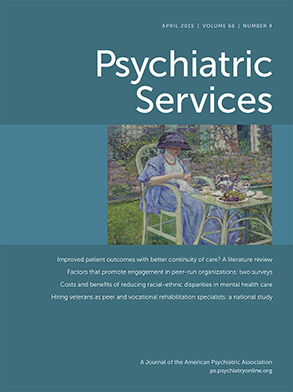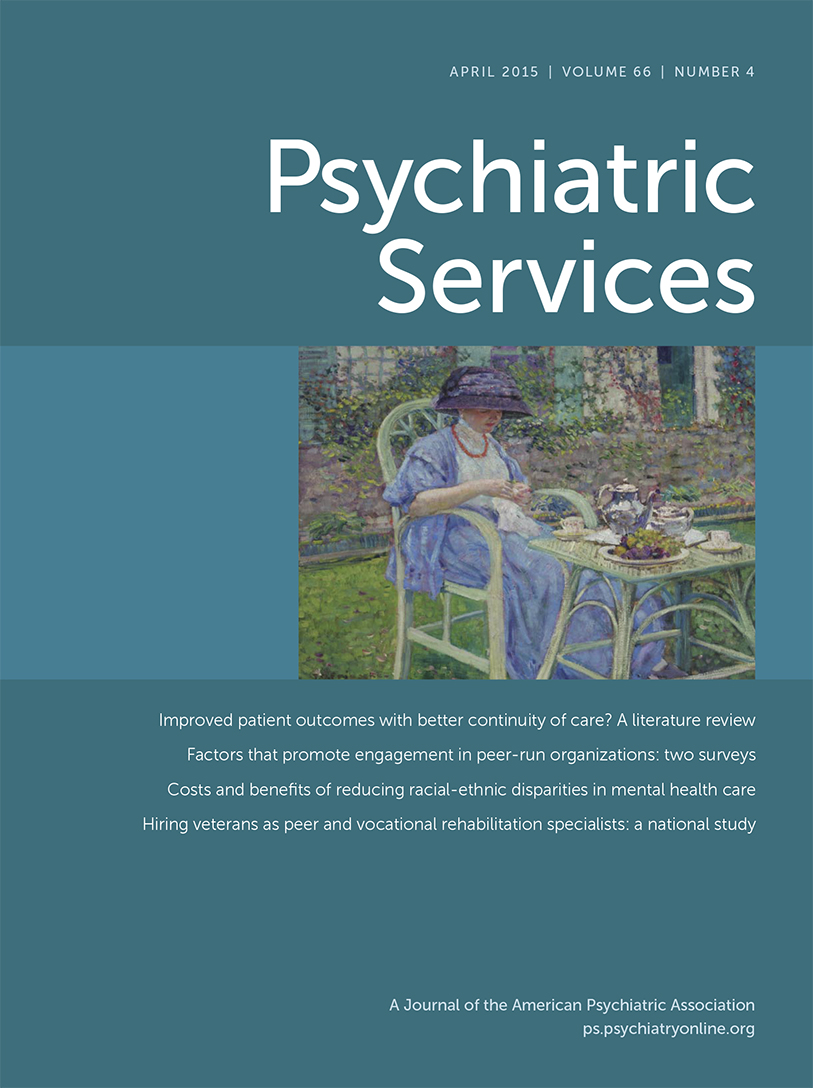To the Editor: Beliefs prevail that mental illness and greater symptom severity are major barriers to interest in and success with quitting smoking (
1). Yet recent studies have found that 80%−89% of smokers hospitalized for psychiatric treatment intend to quit smoking within the next six months (
2,
3).
Smoking contributes to and exacerbates numerous general medical conditions, and persons with mental illness report poorer health than the general population (
4). Little is known regarding the role of health and intentions to quit smoking among individuals with acute mental illness.
In a sample of 956 adult daily smokers recruited during a smoke-free psychiatric hospitalization (2009–2013), we examined the association of psychiatric and general medical symptom severity with tobacco dependence and readiness to quit. The study was approved by an institutional review board and conducted at three San Francisco Bay Area hospitals. Participants provided informed consent. The following measures were completed during hospitalization by interview: mental and physical functioning (SF-12); psychiatric symptom severity (BASIS-24); and cigarette dependence (Fagerström Test for Cigarette Dependence [FTCD]). Confidence, desire, and perceived difficulty with quitting and smoking stage of change were also assessed.
With a 73% recruitment rate, the sample was representative of patients at participating hospitals: male, 51%; non-Hispanic Caucasian, 48%; African American, 23%; other race-ethnicity, 29%; and employed, 21%. Most (66%) had co-occurring disorders: substance use disorder, 61%; bipolar disorder, 32%; nonaffective psychosis, 27%; PTSD, 39%; unipolar depression, 27%; and ADHD, 28%. Before hospitalization, participants averaged 17±10 cigarettes per day and had smoked for 19±14 years, with moderate dependence (FTCD score, 5±2 out of possible 10); 30% did not intend to quit in the near future (precontemplation), 47% intended to quit in six months (contemplation), and 24% were preparing to quit in the next month.
In multivariate regression models adjusting for age, sex, race-ethnicity, income, education, hospital site (academic versus community), and cigarette dependence, poorer perceived general medical health (SF-12) was associated with contemplating and preparing to quit and greater desire to quit but also with greater cigarette dependence and anticipated difficulty quitting permanently (range of β=.07–.13, p<.05 for all). Poorer mental health functioning (SF-12) and greater severity of symptoms (BASIS-24) were associated with contemplating and preparing to quit and greater desire and expected success with quitting but also with greater tobacco dependence and anticipated difficulty quitting permanently (range of β=.08–.12, p<.05 for all) [see table in online data supplement].
Findings indicate that perceived symptoms did not hinder and may instead have motivated smoking cessation. Poorer perceived general medical health and more severe psychiatric symptoms were associated with greater motivation to quit. Although statistically significant and consistent, associations were weak, accounting for .7%−3.0% of the variance in tobacco dependence and readiness to quit.
A recent meta-analysis concluded that quitting smoking is associated with reductions in depression, anxiety, and stress and improvements in mood and quality of life among persons with and without psychiatric disorders (
5). Clinicians are a critical resource in addressing tobacco-related disparities in psychiatric populations and can improve cessation success rates by building patient confidence and informing patients that quitting can improve both general medical and mental health.

